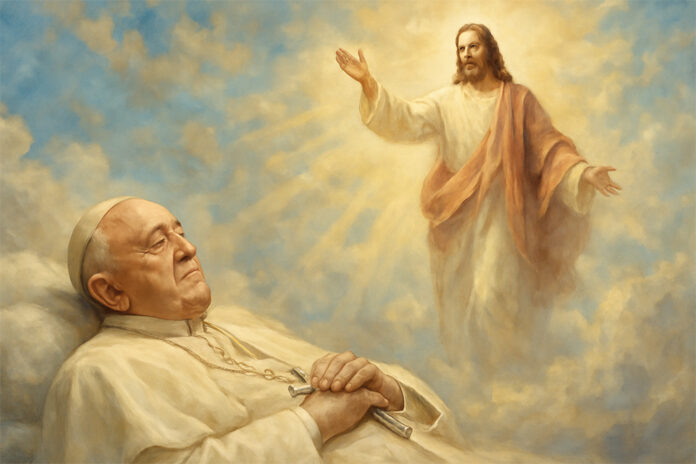by Marvin Ramírez
With the death of Pope Francis, the world bids farewell not only to a religious leader, but to a profoundly human figure, whose words and actions resonated beyond the confines of the Vatican, even beyond the walls of the Catholic Church. Born Jorge Mario Bergoglio on December 17, 1936, in Buenos Aires, Argentina, this son of Italian immigrants became the first Latin American pope and the first to choose the name Francis, inspired by Saint Francis of Assisi, a symbol of humility, peace, and love for the poor.
Since his election to the throne of Peter in March 2013, his papacy was a breath of fresh air—and at times a hurricane of wind—for a Church anchored in centuries of tradition. With a humble smile, simple shoes, and without the trappings of power typical of his predecessors, Francis made a difference from day one. He rejected the papal palace as a residence and preferred to live in a modest room in the Casa Santa Marta in the Vatican. These weren’t just symbolic gestures; they were clear signs of a pope who wanted to return to the roots of the Gospel.
Francis will be remembered for his unwavering defense of the poor, migrants, and the marginalized. In a Church sometimes perceived as out of touch with reality, he insisted on an “outgoing Church,” a Church that doesn’t withdraw into itself but reaches out to those in need. His papacy was marked by trips to the most forgotten corners of the planet: from refugee camps in Lesbos to the slums of Africa and Latin America. His phrase “Make a mess!” addressed to young people in Rio de Janeiro in 2013 became a call to action, to not settle for an unjust world.
But his leadership was not without controversy. Francis addressed thorny issues such as homosexuality, priestly celibacy, the ordination of women, and even the Church’s role in climate change with a frankness that disconcerted more conservative sectors of Catholicism. His encyclical Laudato Si’, in which he exhorted care for our “common home,” was applauded by environmentalists and criticized by climate change skeptics. His pastoral openness toward LGBTQ+ people—”Who am I to judge?”—sparked an earthquake within the Church, provoking both applause and strong resistance.
Internal reform of the Vatican was another bold undertaking. He fought corruption in the Roman Curia and sought transparency in the Holy See’s finances. His crusade against sexual abuse by members of the clergy was firm but criticized by some as insufficient. However, his willingness to listen to victims and his commitment to “zero tolerance” marked a shift from past attitudes.
As a Spanish speaker, Francis was a cultural and spiritual bridge between Rome and Latin America. His voice resonated with particular force among Spanish-speaking peoples, who saw in him not only the successor of Peter, but also one of their own. He spoke in clear, direct Spanish, often incorporating River Plate idioms, and his pastoral style was imbued with the warmth and closeness of a neighborhood priest. His election as Pope was experienced as a symbolic triumph for a continent deeply Catholic, yet historically neglected in the circles of ecclesiastical power.
Now, with his passing, the entire world—faithful and non-believers alike—stops to contemplate the mark left by this elderly pastor. Despite criticism, internal tensions within the Church, and the global challenges he faced, Pope Francis managed to re-enchant many with a faith lived from compassion and mercy. His life was a testimony that the Gospel can be radically human, profoundly political, and, at the same time, mystical. Francis wasn’t a perfect pope—none has ever been—but he was, without a doubt, a necessary pope. And in the end, as happens with great people, even his harshest critics recognized the coherence of his life and the honesty of his struggle. Everyone expressed their love and respect for this simple man, who dared to bear the weight of the symbolic scepter of the Apostle Peter, not like a throne, but like a shepherd’s crook. A shepherd who smelled of sheep, as he himself requested, and who walked among us with the tenderness of one who knows that true power is found in service.
Rest in peace, Pope Francis. The world mourns you, but also thanks you.



